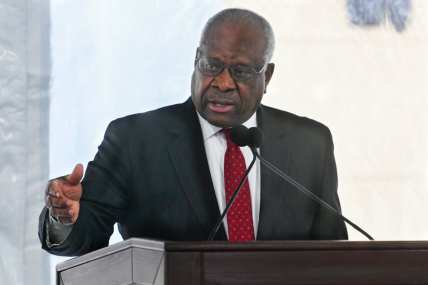Swahili and Spanish dictionaries banned in Michigan prisons
The state's Department of Corrections, claiming a security threat, has so far banned seven books.
The Michigan Department of Corrections has banned dictionaries in Spanish and Swahili, contending the material may incite violence.
Corrections officials claim books and dictionaries in Spanish and Swahili are a security threat, according to NPR.

“If certain prisoners all decided to learn a very obscure language, they would be able to then speak freely in front of staff and others about introducing contraband or assaulting staff or assaulting another prisoner,” said Chris Gautz, the spokesperson for the Michigan Department of Corrections.
“When it’s in a language that we don’t have the ability to read ourselves and understand exactly what it is that we’re looking for, we’re not able to allow it in,” he added.
Spanish-speaking prisoners at Michigan state penitentiaries will be denied all requests for books that do not have an English translation.
The practice, NPR reports, is being adopted by prison systems across the nation to prevent inmates from openly conspiring in front of staffers to carry out violence or introduce contraband. Michigan is extending its prison book ban to include several non-English language dictionaries.
“Prison officials like to censor anything that’s critical of themselves, and also they like to censor anything to do with minority anything,” said Paul Wright, director of the Human Rights Defense Center.

While Wright was incarcerated at a correctional facility in Washington state, he founded Prison Legal News and continues to fight censorship.
The Michigan Department of Corrections has so far banned seven books in both Spanish and Swahili, according to the report. NPR spoke with two incarcerated men who have requested books in the languages. Rodolfo Rodriguez, who is serving a life sentence, has found it challenging to get books in his native Spanish language about how to communicate in English.
“One feels offended. One feels like they are telling you that pure Spanish is worthless, that you don’t need to learn because you’ll just stay here,” he said in a call from Lakeland Correctional Facility in southern Michigan, per the report.
Detroit native Kwesi Osundar, a prisoner at Chippewa Correctional Facility in northern Michigan, has been requesting books in Swahili since 2009 to enrich his knowledge about the African diaspora, according to the report.
“So Swahili being one of the more widely spoken African languages, that was the first stop for me,” he said. Prison officials have reportedly denied his book requests, prompting him to file multiple grievances with the prison, but they are typically ignored.
“It’s just there because they have to give us some form of process to seek administrative remedies, but very seldom does anybody get any relief,” Osundar explained.
As reported by AM 890, a 1989 Supreme Court ruling allows prisons to ban books deemed a threat to safety.
TheGrio is FREE on your TV via Apple TV, Amazon Fire, Roku, and Android TV. Please download theGrio mobile apps today!


